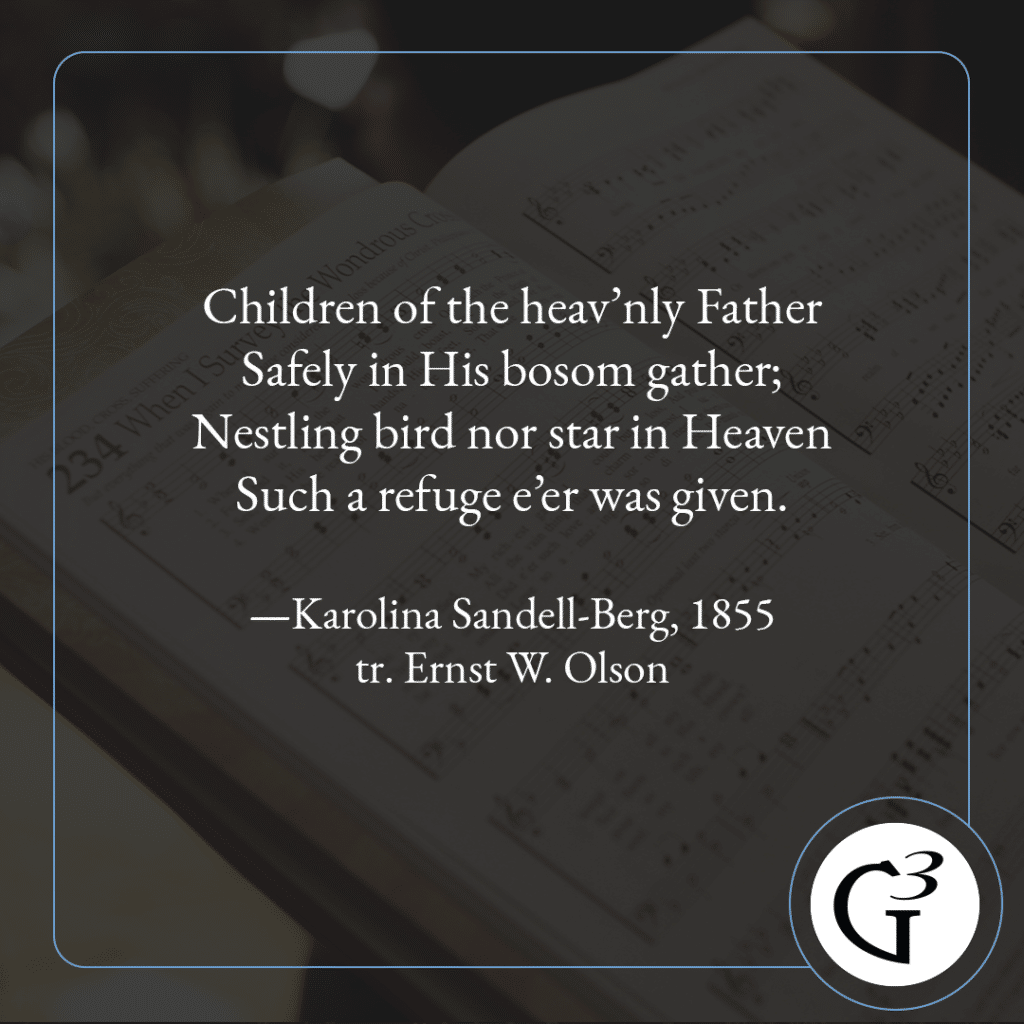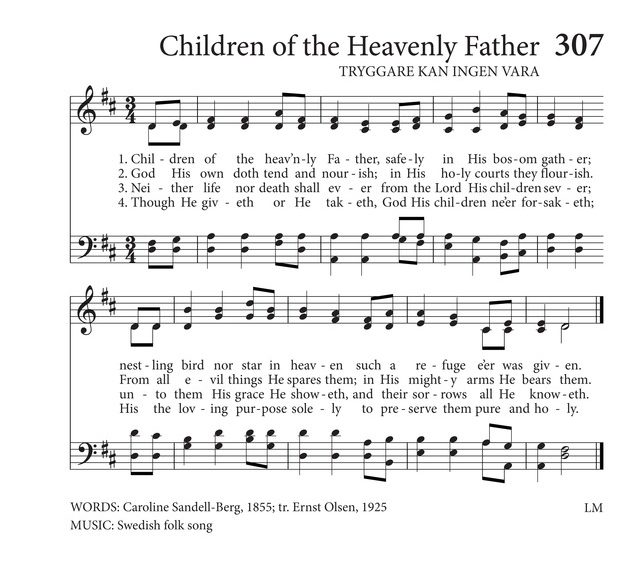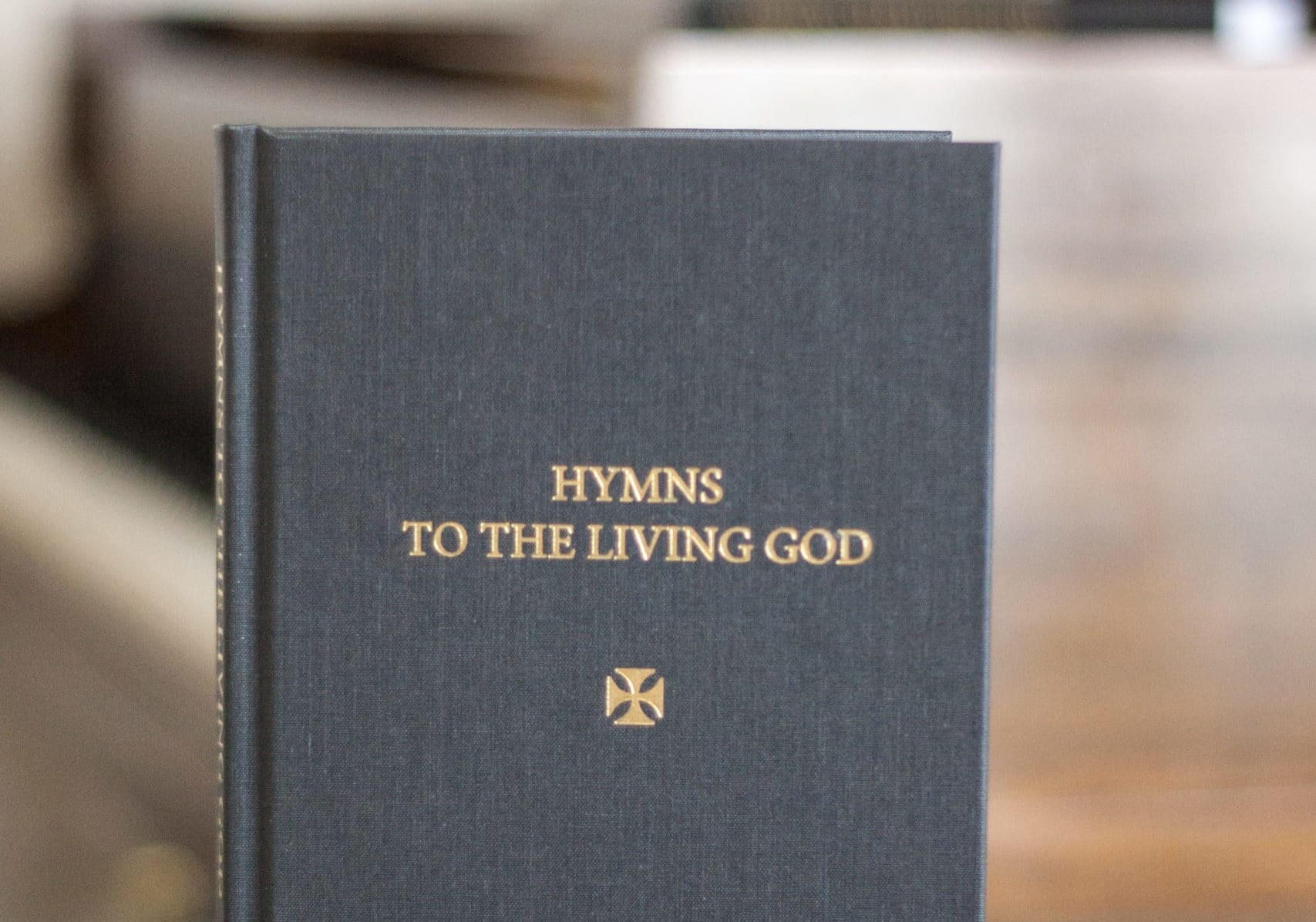
Jonas Sandell, pastor of the Swedish Lutheran parish of Fröderyd, developed a close relationship with his daughter Karolina (1832–1903). Lina, as her family called her, suffered from poor health as a child and consequently spent much of her time in her father’s study. Here Lina learned about the character of the God whom her father preached.
When Lina was 12, an illness left her paralyzed. At home one Sunday while the rest of the family was at church, Lina prayed that God would heal her. She then proceeded to get out of bed, dress herself, and walk to the other side of the room. Overwhelmed with gratitude to God, Lina began writing devotional poetry. She published her first book of poems while she was still a teenager.
At the age of 26, Lina accompanied her father on a boat trip across Lake Vättern. As they stood at the railing of the boat, the boat lurched, sending Pastor Sandell overboard. Lina stood unable to help as her father drowned. Scarred by this tragedy, for the next three years she struggled with despair and impatience. Yet out of her sorrow also came some of her best-loved hymns, including the timeless “Day by Day and with Each Passing Moment.”
Though some writers have identified her hymn “Children of the Heavenly Father” as springing from the loss of her own father, in reality it had been published three years before Jonas Sandell’s death. In her time of grief, did the words she had written provide comfort to her, or did they sound like the idle words of a naïve girl? The testimony of the remainder of her life would seem to indicate the former. As the words run in their most common English translation,
“Though He giveth or He taketh,
God His children ne’er forsaketh.”
Lina had the opportunity to experience what Job had declared millennia before: “The Lord gave and the Lord has taken away. Blessed be the name of the Lord” (Job 1:21).
Though never in good health, Lina lived to the age of 70 and wrote some 650 hymns in her lifetime. Many of her texts, including “Day by Day,” were set to music by Oskar Ahnfelt. Ahnfelt traveled around Sweden, playing the guitar and singing Lina’s poems. He had a close association with preacher Carl Rosenius, and the three of them played a large part in an evangelical revival in Sweden and surrounding countries in the late 19th century. When Ahnfelt wanted to publish the hymns of Sandell-Berg and Rosenius, vaunted Swedish soprano Jenny Lind, who had by this time left the operatic stage, financed the first edition of the hymnal.
“Children of the Heavenly Father” is typically sung to a tune of Swedish origin, though it is unclear whether or not Ahnfelt wrote it. The simple, child-like melody fits the text beautifully, while still supporting the hard truths that the text proclaims. No one could be more secure than a child of the heavenly Father (Jn 10:27-30). He spares us from evil things (perhaps we could better understand it as “the evil one,” as some English translations render Matthew 6:13), yet death is real. However, even in death, God’s children will not be separated from Him (Rom 8:38-39; 2 Cor 5:6-9). God shows grace to His suffering children; their sorrows, while quite real, do not escape His notice (Ps 56:8). The One who protects His children never sleeps (Ps 121:4), and at His command every enemy must give way (Isa 54:17, Rom 8:37)—or, as a more literal rendering of the original Swedish would have it, “At His will all enemies will fall to the ground.” Both the giving and the taking are from the Lord, part of His loving purpose to sanctify His children.
For a beautiful, recent choral setting of this hymn, see the arrangement by Dan Forrest, featuring piano, flute, cello and handbells. For another stunning arrangement, see this unaccompanied setting by René Clausen.
Simple enough to be learned and loved by children, yet profound enough to stretch the theologian’s mind, “Children of the Heavenly Father” stands as a monument to the grace of God and to His sovereignty. Though Lina Sandell may not have completely understood all the implications of her words when she wrote them, the sorrows of her life drove her to live the words out and to cast herself on the unfailing arms of her loving heavenly Father.
Children of the heav’nly Father
Safely in His bosom gather;
Nestling bird nor star in Heaven
Such a refuge e’er was given.
God His own doth tend and nourish;
In His holy courts they flourish;
From all evil things He spares them;
In His mighty arms He bears them.
Neither life nor death shall ever
From the Lord His children sever;
Unto them His grace He showeth,
And their sorrows all He knoweth.
Praise the Lord in joyful numbers:
Your protector never slumbers;
At the will of your defender
Every foeman must surrender.
Though He giveth or He taketh,
God His children ne’er forsaketh;
His the loving purpose solely
To preserve them pure and holy.
—Karolina Sandell-Berg, 1855
tr. Ernst W. Olson




